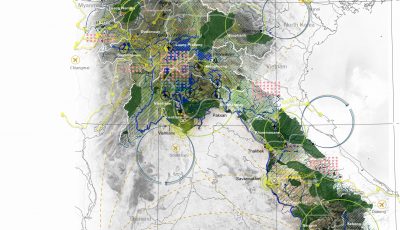Kazakhstan is one of the worlds’ main supplier of raw materials. Its soils cover deposits of nearly all elements in the periodic system. The heavy industry which processes these resources, make the country the largest emitter of greenhouse gases in Central Asia and twice as energy intensive per unit of GDP as the average OECD economy.
With significant economic growth expected in the construction sector, emissions from the cement industry are expected to increase, compromising Kazakhstan’s commitment to reduce its emissions by 15% below the 1990 level by 2020. Shifting Paradigms, together with Climate Focus, Greenstream, Eneco and Whitehopleman, have developed a low-carbon development roadmap that describes a range of technologies that can reduce greenhouse gas emissions from the cement sector and policies which can incentivize their adoption. The most promising option is the substitution of clinker with waste streams from phosphor, steel and power production. Other measures include the gradual phasing out of Soviet-era wet production lines, fuel switch and waste heat recovery.

The different technological options were assessed at plant level. An economic analysis of their financial returns has helped the government to create policy incentives aimed at attracting investments from the cement industry. The cornerstone of the climate change policy in Kazakhstan is its emissions trading scheme. Currently suspended, the scheme will resume operations in 2018. During its first commitment period, the allocation of emission allowances was based on historical emissions (“grandfathering”). The policy roadmap recommended shifting to benchmarking as the preferred underlying allocation principle.
Benchmarking rewards historic action, while granfathering risks subsidising the most carbon-intensive plants. By moving to benchmarking as the basis for the allocation of allowances, cement companies are incentivised to decommission their wet lines and reach out for clinker substitutes, alternative fuels and energy efficiency measures.
The benchmarking proposal was formulated through an elaborate stakeholder process and various roundtables with government representatives and the CEOs of the larger cement companies. This process united cement companies behind a joint policy proposal to the government. Both te technolgoy and policy roadmaps are currently with the government for consideration in its regulatory reform of the emission trading scheme for 2018.
Downloads:

Principal: EBRD
Project partners: Climate Focus, Greenstream, Eneco Solutions, Whitehopleman, Greenovation
2015-2016



